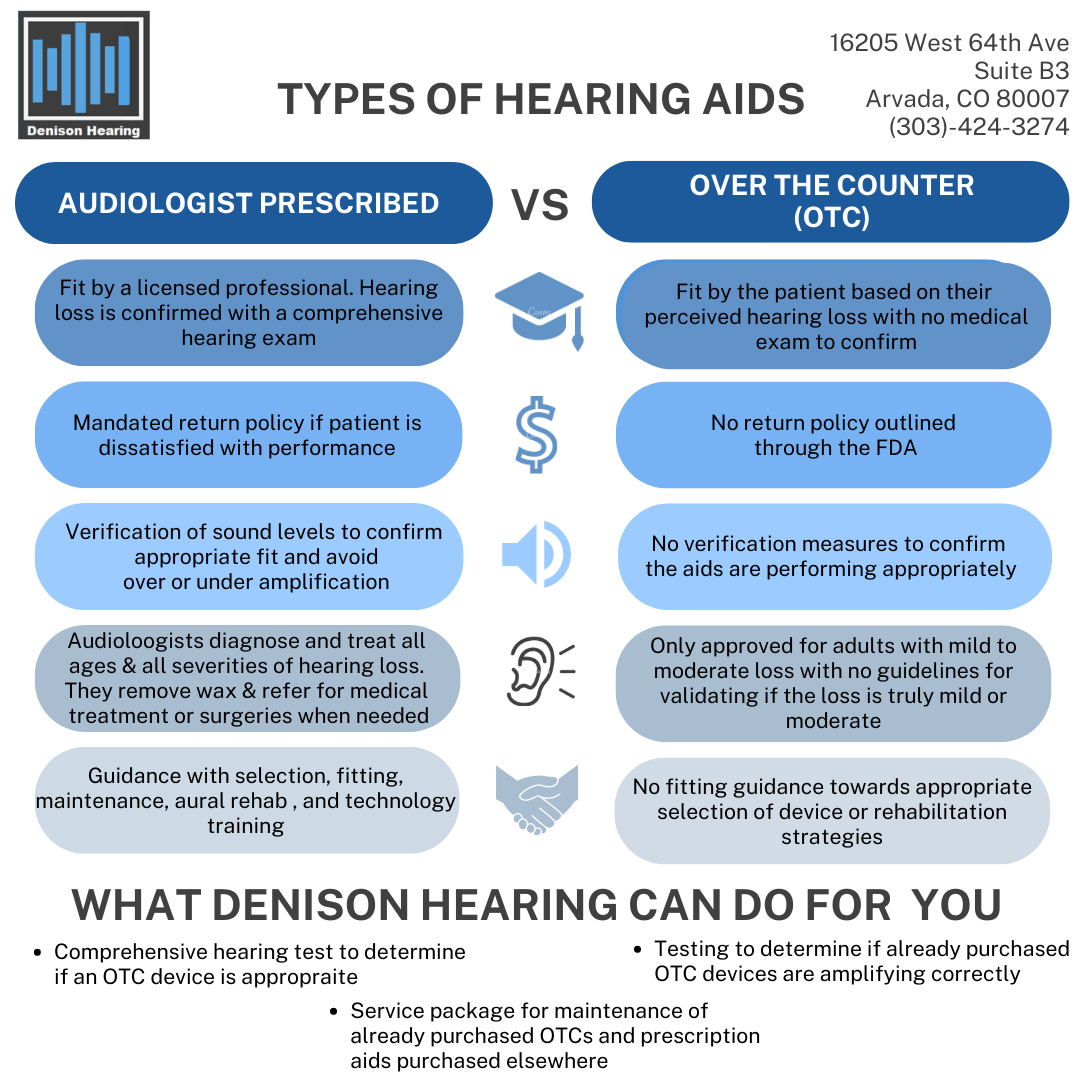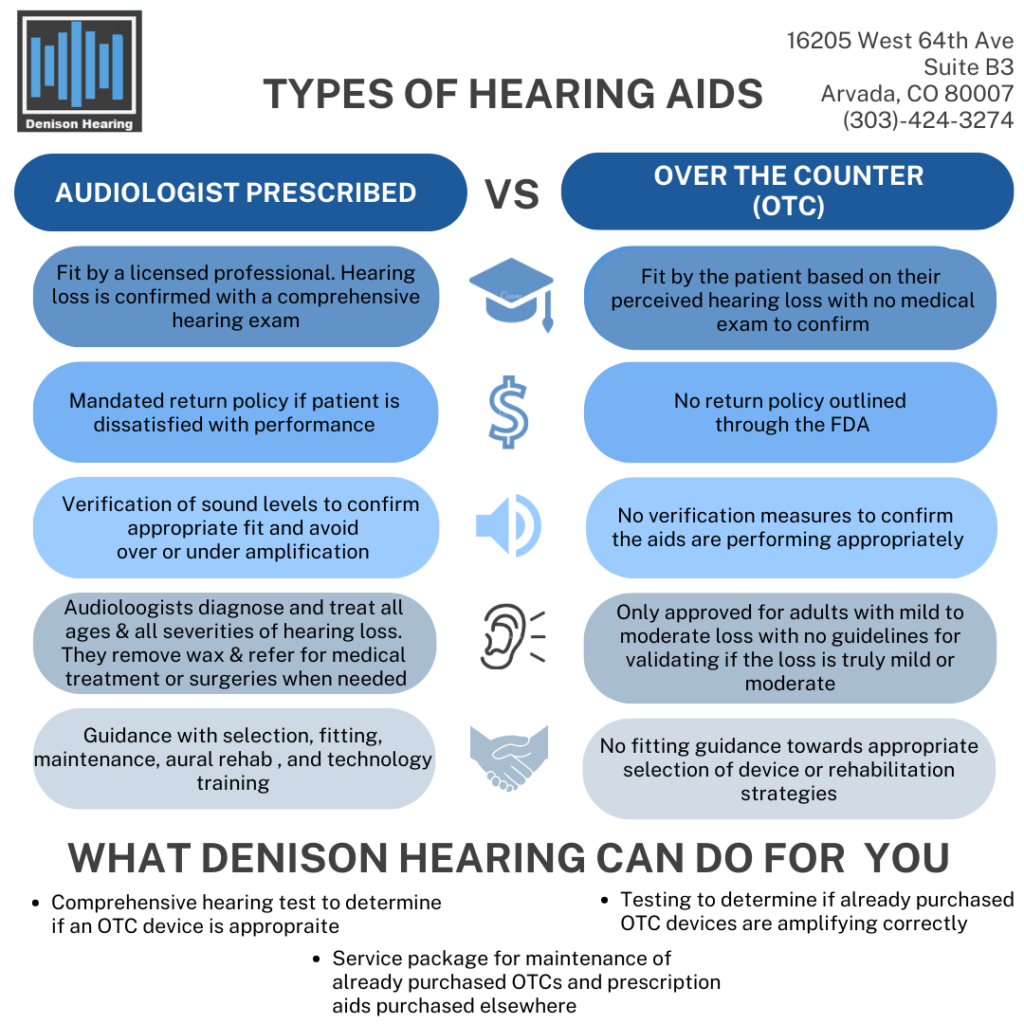
Over-the-counter (OTC) hearing aids are available without a prescription. They and are intended to help individuals with a perceived mild to moderate hearing loss. It is important to understand that over the counter hearing aids may not be suitable for everyone.
One of the biggest concerns with OTC hearing aids is that they may not be appropriate for all types and degrees of hearing loss. Without proper testing and evaluation, it can be difficult to determine if an OTC hearing aid is the best solution for your specific hearing needs. Additionally, the sound quality and customization options for OTC hearing aids may be limited compared to professionally fitted hearing aids.
Furthermore, professional audiological care includes comprehensive hearing evaluations, fitting and verification of hearing aids, and ongoing follow-up care. OTC hearing aids do not provide the same support and care as professionally fitted hearing aids.
It is important to note that in 2017, the U.S. Food and Drug Administration (FDA) created a new category of hearing aids called “over-the-counter hearing aids,” and they have proposed new regulations around this type of device. The proposed regulations will require manufacturers to meet certain safety, labeling, and manufacturing standards. Once implemented, it is possible that OTC hearing aids will be safer and more effective.
In summary, it is important to speak with an audiologist to determine if OTC aids are appropriate for your hearing needs. While, OTC are generally more affordable, there are prescription hearing aids at similar price points. Additionally, your audiologist may provide an “a-la-carte” service plan for hearing aids purchased elsewhere. Visit your audiologist to find out which route is best for your hearing health.

